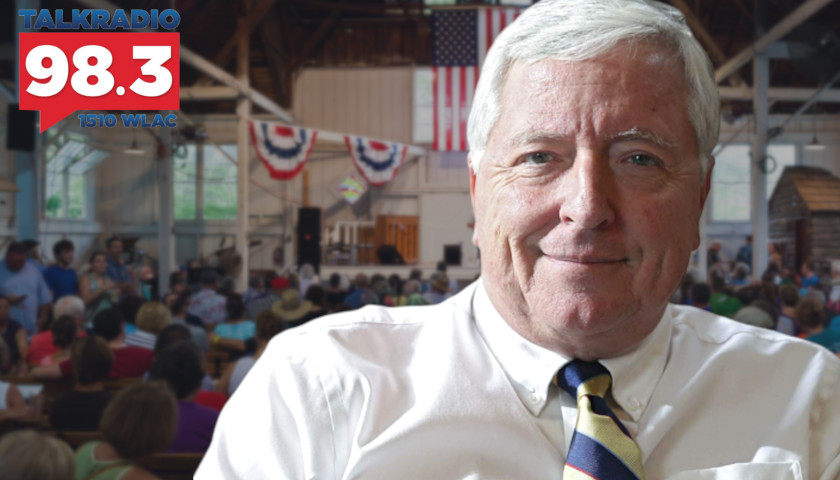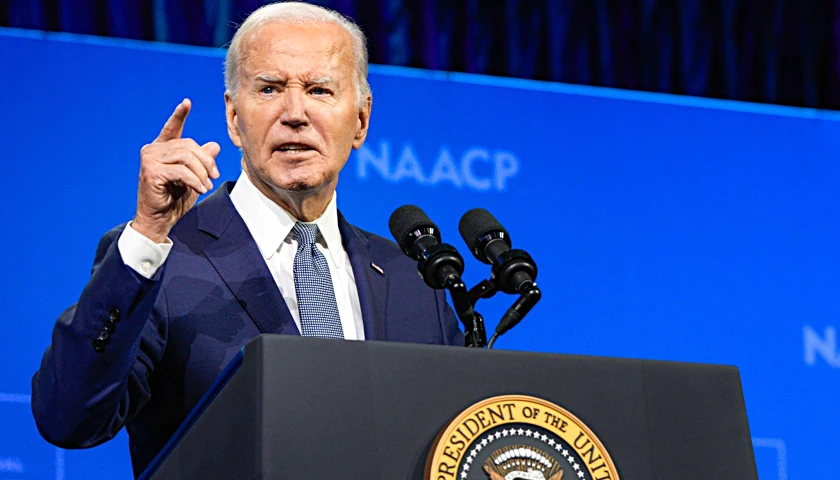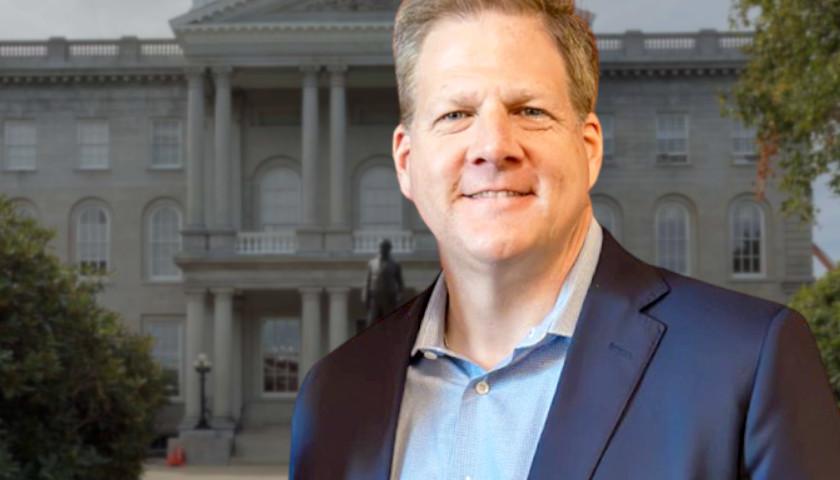Live from WHO studios in Des Moines, Iowa Friday morning on The Tennessee Star Report with Michael Patrick Leahy – broadcast on Nashville’s Talk Radio 98.3 and 1510 WLAC weekdays from 5:00 am to 8:00 am – Leahy was joined in studio by long-time good friend, Jim Larew and discussed Iowa’s political history while differentiating between caucus and primary in both New Hampshire and Iowa states.
Leahy: I am broadcasting live from the studios of WHO radio in Des Moines, Iowa. And I am joined in the studio, we had a reunion last night, with my longtime friend, Jim Larew. Good morning Jim.
Larew: Good morning Micheal.
Leahy: And so Jim is, well, you’re a Democrat Jim, aren’t you?
Larew: I am and I have been for a long time.
Leahy: I’m just curious as to what you think is happening here in Iowa. Let’s see if we can go back to the original question. So you and I were roommates. We knew each other in college. We had a friend there, the late great Alan Brinkley. A historian. He was your thesis advisor.
Larew: Yes, he was.
Leahy: And you wrote a thesis on how Iowa in 1974 elected for the first time, how long was it? 100 years?
Larew: In its history, we’ve had one election in the middle of the depression where we had elected a Democrat. And that was the only time.
Leahy: And you were part of that campaign.
Larew: In 1974.
Leahy: For John Culver.
Larew: That’s right.
Leahy: How many counties? 95?
Larew: 99.
Leahy: Four more than Tennessee.
Larew: OK.
Leahy: And you went to every one of those counties as a young political operative.
Larew: Well, I’ve gone to many of them. (Leahy laughs) Absolutely. And for that campaign, I was responsible for a certain part of the state where I was in every county many times. But over the course of my lifetime, there hasn’t been a county I hadn’t been too.
Leahy: By the way, last night was the first time we’ve met in person in over 40 years isn’t it?
Larew: We used to eat lots of meals together in college. Of course, we lived together that one summer. But hadn’t seen you in 44 years.
Leahy: And you haven’t changed a bit, Jim.
Larew: You know, I think both of us at this age have the faces we deserve. And I think it’s a good thing that we’re on the radio. (Leahy laughs)
Leahy: I agree totally. Our audience in Tennessee is going to want to know the answer to this Jim. Why Iowa? Why is the very first political contest in any presidential cycle, why does it happen in Iowa? And why is the caucus not a primary?
Larew: We’ve had caucuses in Iowa since the inception of the state. But what changed after 1968 was the Democratic convention in Chicago fell apart. We have had in Iowa maintained the caucus for a lot of other states had moved to forms of primaries.
We have a state statute now that says that Iowa must be the first caucus state in the first presidential nominating process. Just like New Hampshire has a statute that says it must have the first primary.
Leahy: And so far that’s held, although every now and then somebody says, “Well I’m going to go instead in New Hampshire.” Or, “I’m going ahead instead of Iowa.” But none of those really seem to happen.
Larew: It hasn’t worked and it has a self-serving favorable loop mechanism that usually happens. Whether it’s a Democrat or Republican president that’s elected, they usually have done pretty well in Iowa. They have a certain kind of nostalgia. They have experience in the state. They have networks. So once you have an incumbent president of either party they keep it the way that it’s been.
Leahy: And there’s a bit of a political infrastructure here. You say out of the blue if a state where to say, ‘Oh, I want to do caucuses.’ I mean you have what, 3000 caucuses around the state?
Larew: We have 2400 precincts.
Leahy: 2400 precincts.
Larew: And each precinct has a caucus. And you could do it in other states. Advantages in Iowa I think for challengers that want to start fresh is that we really don’t have powerful or political organizations that survive elections very long.
So that means if someone wants to come into Iowa and start from scratch and build something. They don’t have to party bosses and go into smoke-filled rooms and cut deals in order to have a chance. It’s a wide-open playing field in Iowa.
Leahy: And every year, you’ve participated in one way or another since 1976?
Larew: I have. I stayed late from our studies in college. Jimmy Carter was getting a start here. I met him in one of our Kennedy school classes. And Jimmy Carter and Jody Powell.
Leahy: I remember the late Jody Powell.
Larew: They came and Carter impressed me greatly and so I stayed here late and began to organize for him. And he surprisingly
Leahy: He was not the frontrunner at all at the beginning.
Larew: No. I think undecided even beat him. (Leahy chuckles) But no one expected a governor from Georgia to do well in Iowa at all. So he could move from Iowa to New Hampshire claiming that he was the up and coming candidate.
Listen to the full second hour:
– – –
Tune in weekdays from 5:00 – 8:00 am to the Tennessee Star Report with Michael Patrick Leahy on Talk Radio 98.3 FM WLAC 1510. Listen online at iHeart Radio.
Background Photo “Iowa State Fair” by Phil Roeder. CC BY 2.0.





